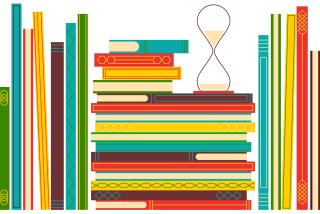Tom Perrotta on what makes a good short story [video]
As guest editor of the 2012 edition of the annual anthology “Best American Short Stories,” Tom Perrotta read more than 100 stories in order to choose the 20 that would appear in the book.
In our conversation, Perrotta discusses a historic tension in American fiction. On one side are writers like Raymond Carver -- the minimalists, the dirty realists -- who wrote in pared-down language about working class people; on the other, the maximalists like Thomas Pynchon and Don DeLillo, who emphasized style, intellectual exploration and bulk.
Which audience to write for? When David Foster Wallace’s “Infinite Jest” thuddingly added formal experimentation to the mix, who to write for then?
Perrotta falls near to the Carver camp, but not entirely within it. His books “Election,” “Little Children,” “The Abstinence Teacher” and “The Leftovers” combine everyday lives, deceptively simple language and wicked humor. In “The Leftovers,” he departs from realism altogether, setting the story in a suburban America populated by those left behind after the Evangelical Christian Rapture.
Perrotta explains that he was somewhat surprised to find himself less intrigued by stories that mirrored his own interests than those that showed him an unfamiliar slice of reality. Roxanne Gay’s “North Country” is about an African American professor who takes a job in a remote, all-white town; Mike Meginnis’ “Navigators” is about a father and son who become obsessed with a video game.
Both of those stories came from Hobart, an independently published literary journal that Perrotta had never heard of. Others that he included come from the magazines that are widely known for publishing excellent short fiction: The New Yorker, Granta, Tin House, McSweeney’s, the Paris Review. And some of the top short story writers of the moment -- Alice Munro, George Saunders -- are represented; he explains why.
Perrotta will serve as editor of “Best American Short Stories” only this once; he says that he read just a fraction of the thousands of stories series editor Heidi Pitlor sorted through before he got the final stack -- as she’ll do for the next guest editor.
Next up, Perrotta will be publishing his own book of short fiction.
ALSO:
Review: The dark sensibilities of “Kingston Noir”
“The Silent History” turns up the noise on a new kind of e-book
National Book Award finalists include Junot Diaz, Anthony Shadid
Carolyn Kellogg: Join me on Twitter, Facebook and Google+
More to Read
Sign up for our Book Club newsletter
Get the latest news, events and more from the Los Angeles Times Book Club, and help us get L.A. reading and talking.
You may occasionally receive promotional content from the Los Angeles Times.







